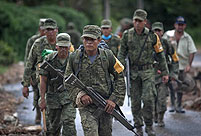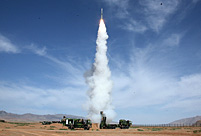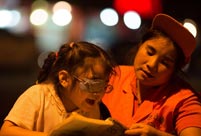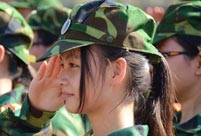Afghan newspapers on Sunday expressed doubt over the intention and ability of Mullah Baradar, Taliban's ranking leader to play positive role in accelerating the ongoing peace process in Afghanistan.
Mullah Baradar, Taliban's second in command and founding member of Taliban hierarchy in 1994, had been arrested by Pakistani security forces in 2011 and was released on Saturday Sept. 21, following President Hamid Karzai's frequent request.
"Meeting President Karzai's demand, Islamabad released Mullah Baradar on Saturday but it is unclear whether he is able to bolster the ongoing peace process and find negotiated settlement to the war in Afghanistan," the daily Hasht-e-Subh writes in its editorial.
"There is no guarantee that Mullah Baradar would quit Taliban to join the peace process," the newspaper said.
Quoting political analyst Wahid Mujda, the daily Hash-e-Subh added that Mullah Baradar would not split Taliban leadership and would not join the peace talks either.
"The government of Afghanistan has achieved its goal in securing the release of Mullah Baradar but let us see if he is eager to push the Taliban for peace," another newspaper Etilaatroz noted in its editorial.
Expressing skepticism, the newspaper added since Pakistan did not submit Mullah Baradar to Afghan government; it seems that Mullah Baradar like former Taliban detainees would rejoin the Taliban rank.
The English newspaper Daily Outlook also focused on Mullah Baradar's release and wrote in its editorial, "It largely depends on whether Baradar's willing to talk to Afghan government and whether he would have the sort of influence within Taliban's current ranks."
Citing Presidential spokesman Aimal Faizi, the Daily Outlook writes, "Afghanistan government's first demand is that Baradar should come to Afghanistan to meet his compatriots, if he did not want to return, he should go to a place where High Peace Council ( HPC) could approach him for talks."
Since November 2012, Pakistan has released around 33 Taliban prisoners, Baradar's release is the most vital among them, the paper added.
The government-backed peace body the High Peace Council (HPC), according to the paper, has set certain conditions including respecting constitution and giving up fighting before talks can be started, but a per-condition seems difficult for the hardline Taliban to accept.
 Storms leave 97 dead, 58 missing in Mexico
Storms leave 97 dead, 58 missing in Mexico New model of indigenous surface-to-air missiles testfired
New model of indigenous surface-to-air missiles testfired  118.28-carat diamond to be auctioned in HK
118.28-carat diamond to be auctioned in HK Maternal love under streetlight
Maternal love under streetlight Naked foreign student sits in the middle of a road in Haikou
Naked foreign student sits in the middle of a road in Haikou  Colorful Yunnan: Enjoy the natural beauty
Colorful Yunnan: Enjoy the natural beauty Harbin named Chinese city with most beautiful women
Harbin named Chinese city with most beautiful women New college students' military training in Guangzhou
New college students' military training in Guangzhou Rugby girls
Rugby girls PLA's 38th Group Army conduct training
PLA's 38th Group Army conduct training Residences of the royal house of Savoy
Residences of the royal house of Savoy The last days of Wan Aihua
The last days of Wan Aihua Highlights at 12th National Games of China
Highlights at 12th National Games of China Beijing Film Academy welcomes freshmen
Beijing Film Academy welcomes freshmen Large mahjong party sets new world record
Large mahjong party sets new world recordDay|Week|Month